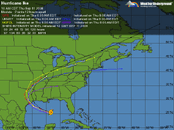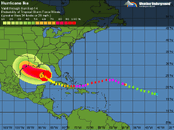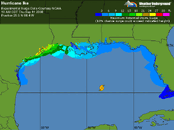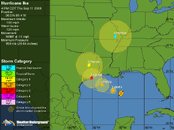I posted this on a Texas board earlier today. Maybe someone else could benefit from it.
Just a few tips from Louisiana, the hurricane abused...
1. If you are in a location that your power is buried in ground, you only have to worry about protecting your property. If you do lose power, it is probably just a short lived transmission issue at the substation.
2. If you have overhead power lines, do you have a lot of trees in the area? If so, the trees can become uprooted and knock down the lines. If you don't have a lot of trees, again, it shouldn't take as long to reconnect lines after the storm, but you may lose power for a day or two or three.
3. If you are in an area that floods when it rains, leave. Take your important papers, titles, prescription drugs, photographs, keepsakes, and car and home insurance policies (very important) with phone numbers to call for claims. Take your pets with you. You cannot live where your property is submerged.
4. If you still have an old analog phone, get it out and be prepared to use it. If you do lose power, your other cordless and powered phones will not work.
5. If you live alone and you do decide to stay, make sure someone who is also staying knows to contact you when the storm is over.
6. If you have a generator or are thinking about staying because you are going to buy a generator, be prepared to have a problem finding gasoline (and the generator for that matter if you don't have one already). Gas stations cannot pump gas if they have no power. Get gas ahead of time. Also, be prepared to spend $800 or more for a generator and $50 to $100 a day on gasoline depending on how much you are going to run in your house and how long you are going to run your generator. It is best to not try to run that big central unit if you can run the window unit in your bedroom. FEMA will only pay for the generator if you are without power for at least 7 days, if you are thinking of filing a claim. It is difficult to find 5 or 6 gallon gas cans, gasoline, ice, generators and electrical connections for the generator IMMEDIATELY BEFORE AND AFTER the storm.
6. If you lose power and you are going to leave, or are leaving, in order to avoid a real mess in your refrigerator when you get back, either empty the contents of your freezer, or cook it and eat it. You may not lose power for 3 days, but if you do, that is all it takes to spoil everything in your fridge. If you have a freezer full of ice, that will help keep it that long. If you leave, take the ice out also, or it runs out like everything else.
7. Even if you are planning to stay, have an exit strategy. There will be an hour when evacuation is no longer advisable or possible as downed trees and power lines will block roadways until after the storm is over and work crews have cleared them. You do not want to get caught out in the storm in your vehicle. Know where the nearest public shelter is if it gets too bad or your house is destroyed by a tornado. (No, I'm not kidding.)
8. If you lose power, you will have no light at night. The only sound in the neighborhood will be the drone of generators, at which time carbon monoxide is building in the area and could cause health problems. Have whatever light sources you are going to use available and charged or batteries for replacement, unless you have a generator and keep it running all night. If you live in the country like I do, turn everything off early to keep your eyes adjusted to no light and go outside and look at the stars (not until the storm passes obviously). You will be surprised how cool the sky looks when there are no lights around.
Best of luck to everyone!








